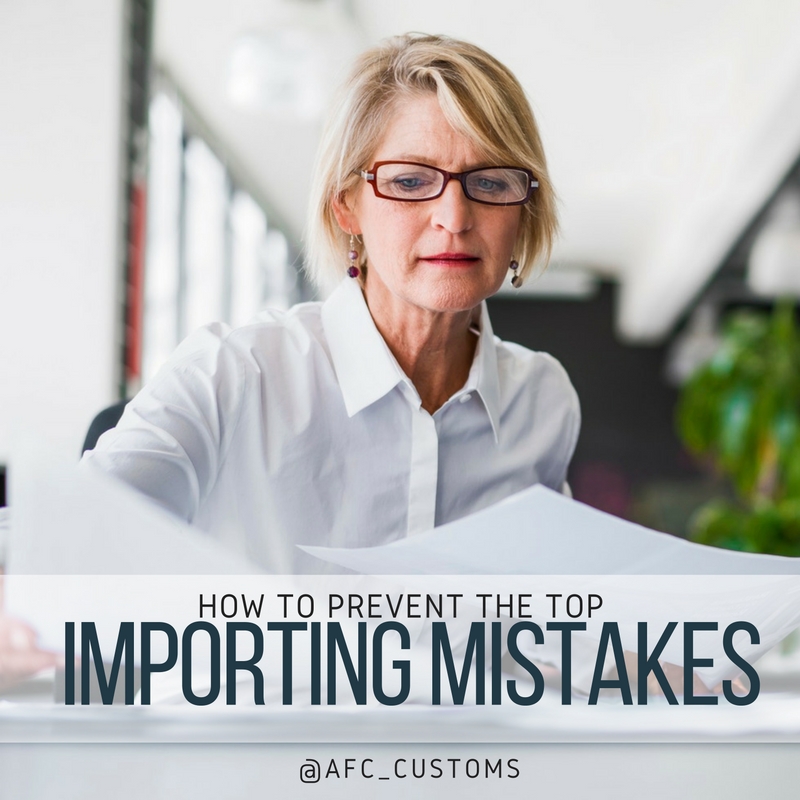Are you an importer that is new to the import game? Or maybe you are an importer looking to streamline the import process. We see common mistakes every day that keep goods from entering the U.S., cause unnecessary delays or even cause goods to be rejected because of common mistakes. Here’s a cheat sheet on what to avoid so your goods enter smoothly.
Not Providing a Complaint Commercial Invoice

Commercial invoices and billing paperwork must contain the complete information for U.S. Customs and Border Protection (CBP) officials so goods are stamped with a seal of approval and deemed admissible. It is the importer’s responsibility to ensure invoices prepared by their vendors are compliant. The commercial invoice is used by the CBP to determine admissibility, classification and valuation of merchandise. Make sure you adhere to the following commercial invoice requirements:
- Add the names of the buyer and seller for sold items.
- Add the names of shippers and receivers for consigned items.
- Provide a detailed description of the merchandise and the country of origin.
- Add the quantities in weights and measures.
- Include the purchase price for sold/agreed to be sold items.
- Add rebates, drawbacks and any bounties.
- Include the kind of currency being used.
- List the goods and services used for the production of the merchandise that is not included in the invoice price.
- Provide a commercial invoice in English.
Not Providing Proper Incoterms
Incoterms are the internationally accepted definitions and rules of interpretation for most commercial terms. The terms are used worldwide in international and domestic contracts for the sale of goods. The proper Incoterms must be assigned to your goods to ensure the proper commercial definitions for your imports. Read more about Incoterms and their rules and meanings.

Not Listing the Country of Origin
Where are your imports coming from? Label the address and origin country and also include the address and country where the imports were purchased from if it differs from the origin country.
Lack of Merchandise Detail
One of the most common mistakes importers make is leaving out a proper merchandise detail description on their import paperwork. For import descriptions, make sure you answer the following in your description:
- How many?
- What type is it?
- What is it made of?
- Where was it manufactured?
- What country was it made in?
Using the Incorrect Duty Rate
Most imports have their own section in the Harmonized Tariff Schedule, which decides what tax, or tariff duty, you have to pay for your imported goods. Make sure you are using the correct rate so your import process runs smoothly and you are paying the proper duty rate.
Completing All of the Proper Paperwork
The CBP enforces the laws and regulations for all of your imports and import paperwork. Commodity license requirements and paperwork the CBP requires can be handled by Licensed Customs Brokers. The following import document paperwork should always be included:
- A commercial invoice that lists the purchase price, country of origin and tariff classification of your items
- A packing list detailing your imports
- A bill of lading that lists goods in the form of a receipt
- An arrival notice from the U.S. agent
Avoid Importing Mistakes: Contact a Customs Broker
The import customs clearance process can be difficult to maneuver alone effectively. A Licensed Customs Broker can help your imports arrive safely on U.S. soil while avoiding import process hurdles. Don’t wait to call a Customs Broker when you have an issue and are already working your way through the import process. It is best to reach out to them ahead of time to make the process more effective and efficient for you. They can help you avoid importing mistakes.

